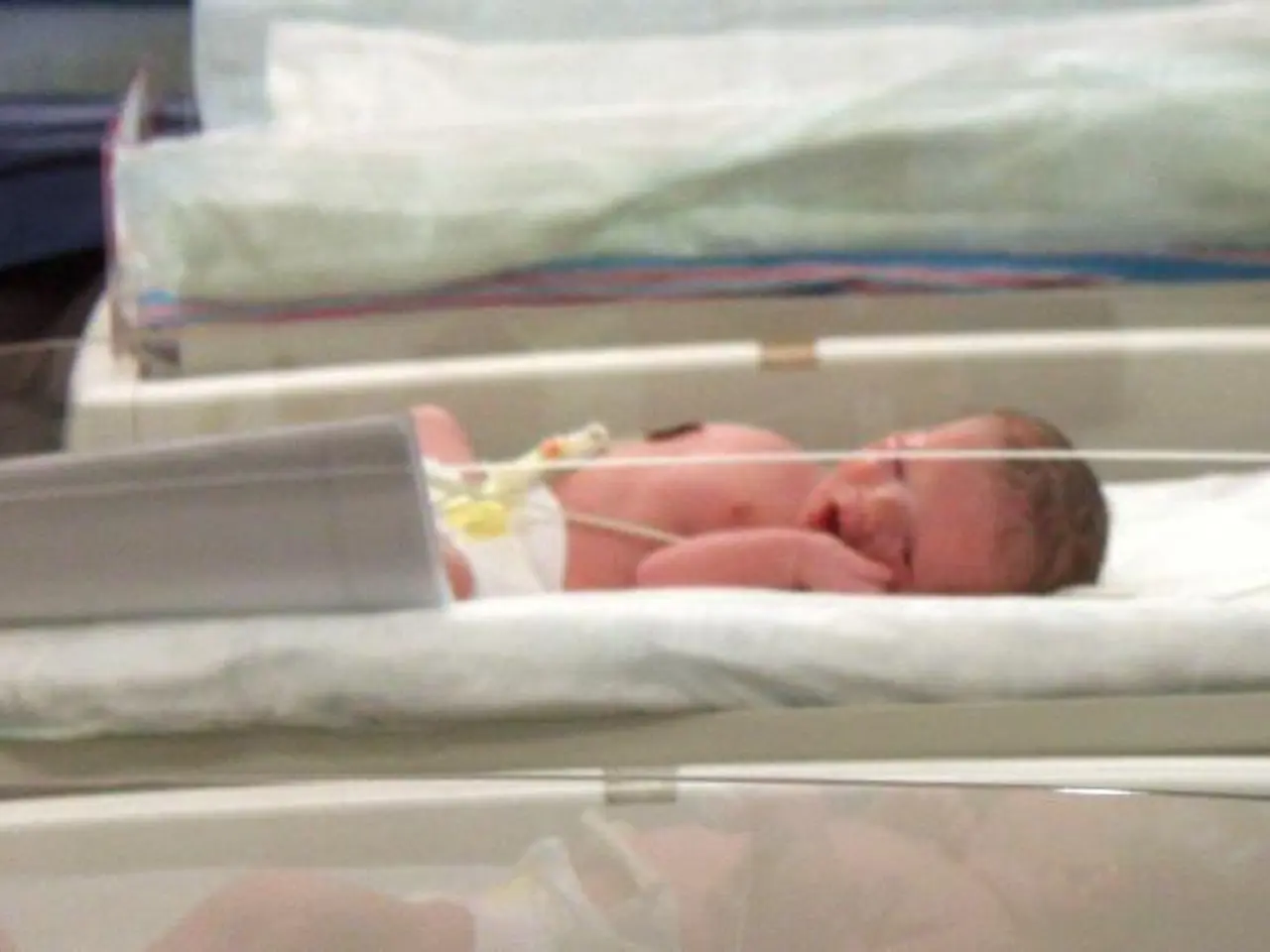Couple in Ohio celebrates the birth of a newborn son using a 31-year-old frozen embryo
Record-Breaking Birth from 31-Year-Old Frozen Embryo
A remarkable event has taken place in the realm of in vitro fertilization (IVF), as a baby boy named Thaddeus Daniel Pierce was born last week in Ohio, marking a new world record for the longest frozen embryo leading to a successful live birth.
The embryo, which was frozen in May 1994, was used in an embryo adoption process and was transferred to Lindsey Pierce's womb in 2022. Two of the surviving embryos were implanted, but only one successfully took root. The Pierces, who did not go into the process thinking about records, just wanted to have a baby, were overjoyed with the news.
The clinic where the Pierces' doctor is located, Rejoice Fertility in Knoxville, Tennessee, refused to discard the frozen embryos, playing a crucial role in this historic event. Dr. John David Gordon, the doctor who assisted in the transfer, stated that this marks the longest-frozen embryo to result in a live birth.
The record for the oldest frozen embryo to result in a live birth in the U.S. was previously around 30 and a half years. This milestone demonstrates the advanced capabilities of IVF and embryo cryopreservation technology in preserving embryo viability over decades.
Embryo adoption has been around since the 1990s and is gaining attraction. Linda Archerd, who donated embryos in 1994, felt that the embryos deserved to live just like her daughter did. Archerd was able to set preferences for what families would adopt her embryos through Snowflakes, a division of Nightlight Christian Adoptions, which offers open adoptions to donors.
About 2% of births in the U.S. are the result of in vitro fertilization, and an even smaller fraction of those births involve donated embryos. Archerd, who feels relief that her embryos finally found a home, but also sadness it couldn't be with her, is hoping to receive pictures from the Pierces and possibly meet them and the baby in the future.
As of now, an estimated 1.5 million frozen embryos are currently being stored throughout the U.S. The Alabama Supreme Court's 2024 decision gave frozen embryos the legal status of children, adding a new layer of complexity to the debate surrounding their storage and use. This record-breaking birth serves as a testament to the potential of this technology and the dreams it helps bring to life.
- The advancements in medical-conditions such as in vitro fertilization (IVF) and embryo cryopreservation technology have significantly contributed to family-health, as demonstrated by the recent record-breaking birth from a 31-year-old frozen embryo.
- While mental-health concerns may arise from the complexities of embryo storage and use, such as the feelings of sadness experienced by Linda Archerd, parenting is not exclusively biological, emphasizing the importance of health-and-wellness and compassion in family planning.
- The record-breaking birth of Thaddeus Daniel Pierce has highlighted the tremendous impact science has on health, by preserving embryo viability and offering hope for those aspiring for family-health and wellness, even after decades of storage.




